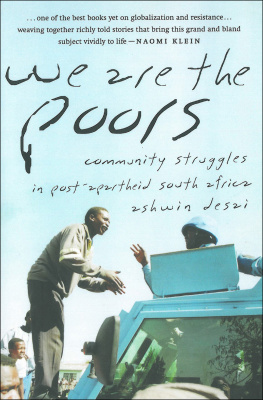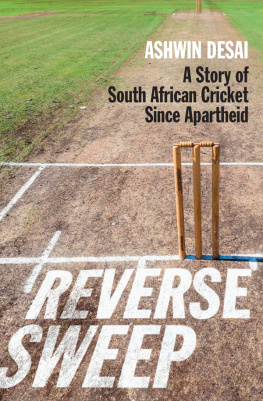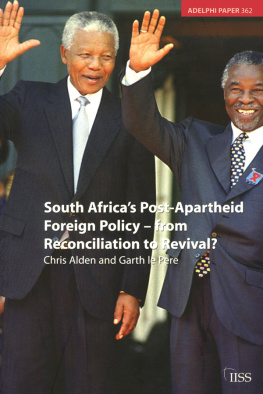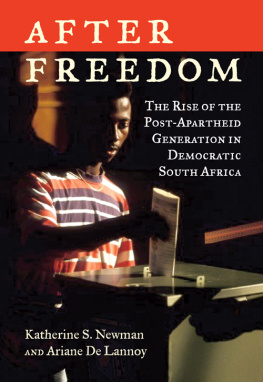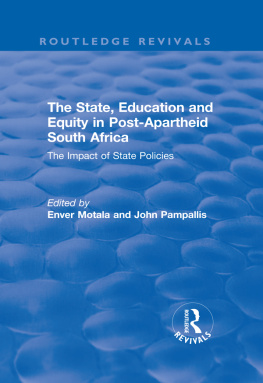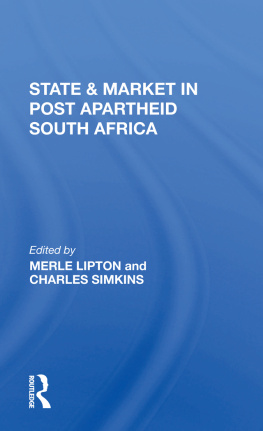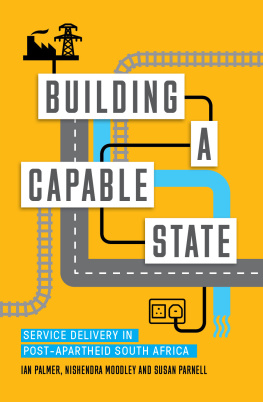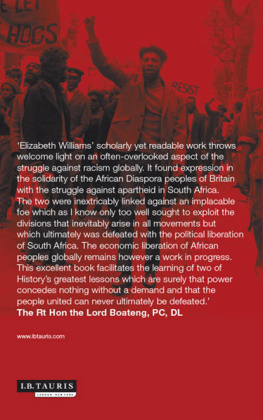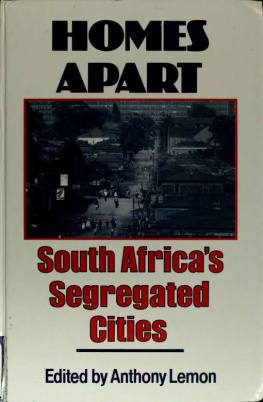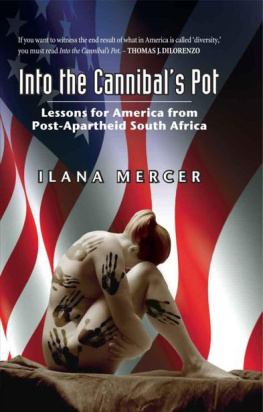Thank you for buying this ebook, published by NYU Press.
Sign up for our e-newsletters to receive information about forthcoming books, special discounts, and more!
Sign Up!
About NYU Press
A publisher of original scholarship since its founding in 1916, New York University Press Produces more than 100 new books each year, with a backlist of 3,000 titles in print. Working across the humanities and social sciences, NYU Press has award-winning lists in sociology, law, cultural and American studies, religion, American history, anthropology, politics, criminology, media and communication, literary studies, and psychology.
we are the poors
Copyright 2002 by ASHWIN DESAI
All Rights Reserved
Publication of this book was made possible by a generous grant
from the Lipman Miliband Trust
Library of Congress Cataloging-in-Publication Data
Desai, Ashwin.
We are the poors : community struggles in post-apartheid South Africa / Ashwin Desai.
p. cm.
Includes bibliographical references and index.
ISBN 1-58367-050-5 (pbk.)
ISBN 978-158367050-7
1. South Africa-Economic policy. 2. Poor-South Africa. 3. Blacks-South Africa-Economic conditions. 1. Title.
HC.905 .D38 2002
305.5690968-dc21
2002006897
MONTHLY REVIEW PRESS
146 West 29th Street, Suite 6W
New York, NY 10001
Introduction
THE STORY TOLD IN THIS BOOK begins in Chatswortha township on the outskirts of Durban, the largest city on the eastern seaboard of South Africa. It describes an ongoing spiral of struggle against market-driven measures to make residents of poor communities become paying customers in a capitalist society supposedly made non-racial by the defeat of apartheid and by the embrace of the free market in its place. This struggle has spread from Chatsworth to other poor communities around Durban, and to other parts of South Africa. To say that this struggle begins in Chatsworth is a kind of shorthand, which saves the trouble of explaining each time that, like all revolts that grow, it has many beginnings. It could surely have been traced back to other sources. Even so, there are good reasons to begin in Chatsworth.
When I started writing this story, Chatsworth was both a place and a struggle. It should become apparent as the story unfolds that Chatsworth has also become a politics. Race and class, the old chestnuts, still loom large. But new political variants have emerged, happily immune to infection by Robben Islanders, exiles, and ethnic entrepreneurs; the ruling post-apartheid political faction. Unemployed, single mother, community defender, neighbor, factory worker, popular criminal, rap artist and genuine ou (good human being). These constructs have all come to make up the collective identities of the poors.
The struggle in Chatsworth helped to ignite rebellions in other areas, and to illuminate struggles already happening elsewhere. These struggles, at first conducted in isolation from each other, have begun to jump the firebreaks of race and place. Will they continue to do so, and incinerate the fetters of old political allegiances and class compromise that have so immobilized us these last ten years? Or will the multitude be confined to the outer reaches of society doused by brigades of politicians, past masters of turning on and off the taps of struggle and expectation? Or will they stand side-by-side and in so doing light the way to a new society?
THESE HIDDEN STRUGGLES HAVE BEEN EPIC, because they have taken guts and imagination. Above all, before a new basis of solidarity could emerge, the ethnic handicap had to be overcome. Chatsworth itself was created as a dumping ground for people classified as Indian by the apartheid system, and most of the people who live there are Indian. This made participants vulnerable to race baiting. They were Indians dissatisfied with an African government. As events have unfolded, it has become apparent that this ethnic dimension has been a blessing. It bestowed upon people crude accusations from desperate politicians. These accusations, the people considered and then rejected with the formulation of counter-identities. As these upsurges have spread to African communities like Mpumalanga, colored communities like Wentworth and Tafelsig, so these new identities have been strengthened and attempts to divide-and-rule are met more with laughter than concern.
The visible part of these struggles, mass mobilization, began hesitantly. To grow, they required political and organizational innovation. Community leaders were marked with the labels of agitator, radical, and counterrevolutionary, used interchangeably. It was difficult to respond. Memories of past traditions of resilience and resistance had to be filtered through new buzzwords and adapted to changed conditions. The easy moral satisfaction of the anti-apartheid struggle was absent. Petit bourgeois support was slim and legal aid and foreign funding unheard of. Against a new democratic government, different boundaries to struggle had to be observed and, when breached, then breached with force rather than violence.
Remarkable political aptitudes developed. Linkages with niche allies, in hundreds of little engagements, were supremely expedient. The enemy was mocked, praised, lobbied, fought, voted for, slandered, borrowed from, setup, debated, and chased away. All principle flowed from the need to ward off evictions, water disconnections and the like. No bridge was unnecessarily burnt. However, this instinct for survival also meant that concessions were made and public pronouncements could become politically murky.
Cultural and religious innovation, too, played a role. People cast about for theologies they could put to work. Religious ceremonies were decoded and given very contemporary moral force. In this way, hip-hop, bhangra, and the festival of (no) lights (Diwali) shared a platform, receiving applause and militant acclaim. Local icons were born with extensive reach into a youth subculture that ran on attitude rather than ideology. And for the ordinary people, the residents with biographies disfigured by poverty, it was discovered that no speech, workshop, or meeting could heal old wounds as healthily as did the labor around the now ubiquitous communal cooking pot.
History also was drawn upon to generate the charge necessary to keep the politics of the poor alive. Having pride of place in many a home in Chatsworth or Isipingo, there are photographs of grandparents as slaves and parents as sweat-shop workers. In these places people take pride in the knowledge that a moral giant, Gandhi, whose creed was anti-imperialist, once lived among them. Then there are memories of the student militants, the bombmakers, the unionists, the intellectuals of the struggle who showed how resistance to oppression could be forged. The ringing question carries its own sharp answer: is this what they fought for?
These struggles have taken place against the grain of every political party. People came to see that lobbying and due process was a futile fob-off when live ammunition was fired at them while they were begging for just thirty minutes more to obtain a court order preventing their eviction. Although tragedy constantly haunts those who operate in Chatsworth, the heavy-handed response of authorities has been a blessing. It has founded a politics that is unrepentant and unusually clear. In short, the struggles described here had to face the huge obstacle of fighting against those who wore the mantle of liberationthe African National Congress (ANC), in the first placeand thus had to undertake the task of forging very new weapons of liberation.


